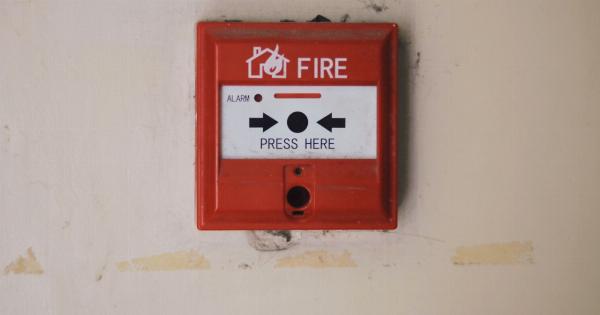A brain hemorrhage is a serious medical condition that occurs when there is bleeding in or around the brain. It is a potentially life-threatening condition that requires immediate medical attention.
Recognizing the symptoms of a brain hemorrhage is crucial for early diagnosis and treatment. In this article, we will discuss the common signs and symptoms of a brain hemorrhage.
1. Sudden Severe Headache
A sudden and severe headache is often the first and most common symptom of a brain hemorrhage. The headache may be described as the worst headache of one’s life and can occur suddenly, without any known cause or trigger.
It is important to note that not all severe headaches are indicative of a brain hemorrhage, but if you experience a sudden and unusually intense headache, it is essential to seek immediate medical attention.
2. Nausea and Vomiting
In addition to a severe headache, individuals with a brain hemorrhage may experience nausea and vomiting. These symptoms are often associated with an increased intracranial pressure due to bleeding in the brain.
3. Changes in Vision
Changes in vision can occur as a result of a brain hemorrhage. Some individuals may experience blurry vision, double vision, or difficulty focusing. If you notice any sudden changes in your vision, it is important to consult a healthcare professional.
4. Weakness or Numbness
Weakness or numbness on one side of the body, particularly in the face, arm, or leg, can be a symptom of a brain hemorrhage. This is often caused by the disruption of blood flow to specific areas of the brain.
If you experience sudden weakness or numbness, it is essential to seek medical attention immediately.
5. Loss of Coordination
Loss of coordination or balance can occur due to a brain hemorrhage. This symptom often presents as difficulty walking, stumbling, or clumsiness.
If you are experiencing unexplained coordination problems, it is advisable to consult a healthcare professional.
6. Difficulty Speaking or Understanding
Brain hemorrhages can also affect language and speech abilities. Individuals may experience difficulties in speaking, slurred speech, or confusion in understanding words or sentences.
If you or someone you know exhibits these symptoms, seek medical attention promptly.
7. Seizures
Seizures can be a sign of a brain hemorrhage. If an individual experiences an unexplained seizure, it is crucial to seek immediate medical help.
8. Altered Mental State
A brain hemorrhage can lead to changes in mental state and consciousness. These changes may include confusion, disorientation, memory loss, or even coma.
If you notice any significant changes in mental state, it is essential to seek immediate medical attention.
9. Sensitivity to Light or Sound
Sensitivity to light or sound, known as photophobia or phonophobia, respectively, can occur as a symptom of a brain hemorrhage. This sensitivity can be highly uncomfortable and may require medical evaluation.
10. Change in Breathing Pattern
A brain hemorrhage can affect the respiratory system, leading to changes in breathing patterns. This may include rapid breathing, shallow breaths, or irregular breathing.
If you or someone you know experiences abnormal breathing, seek immediate medical assistance.
Conclusion
Recognizing the symptoms of a brain hemorrhage is crucial for early diagnosis and prompt treatment. If you or someone you know experiences any of the aforementioned symptoms, it is important to seek immediate medical attention.
Remember that early intervention can greatly improve the outcome and prognosis of a brain hemorrhage.



























